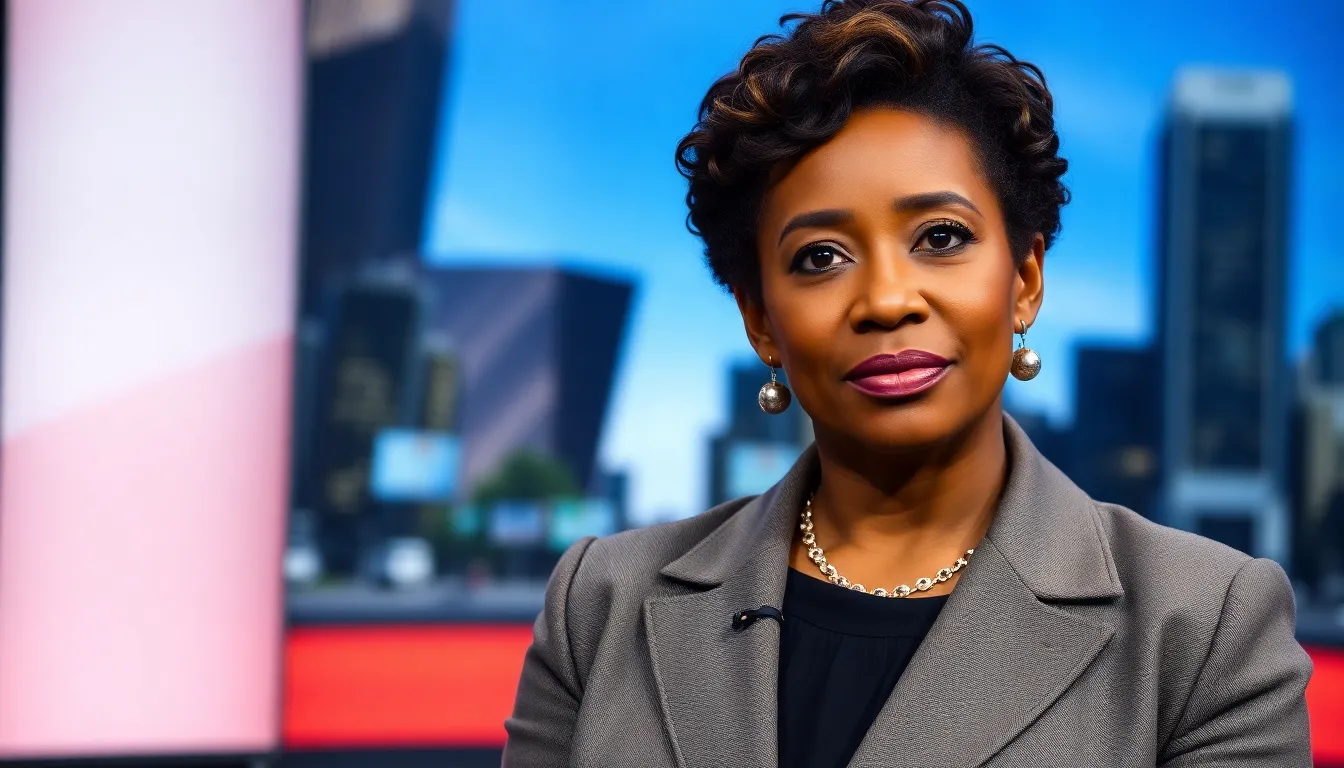In the ever-evolving world of television news, few personalities spark as much conversation as Joy Reid. Known for her sharp wit and unapologetic commentary, her recent departure from her role has left fans scratching their heads. What could possibly lead to the exit of such a prominent voice?
Table of Contents
ToggleOverview of Joy Reid’s Career
Joy Reid built a reputation in journalism through her roles as a television host and political commentator. Starting her career in local television in Florida, she captured attention for her incisive analysis and commentary on contemporary issues. Reid transitioned to national platforms, working for MSNBC, where she gained prominence hosting “The ReidOut,” offering sharp insights into politics and social issues.
In addition to her hosting duties, she contributed as a political analyst, providing viewer perspectives shaped by her background and experiences. Reid has also authored a book, “The Man Who Sold America,” which delves into political identity in the United States. This publication further solidified her position as a critical voice in political discourse.
Reid’s path has not been without controversy. Her candid commentary occasionally drew scrutiny and sparked debates on social media. Critics and supporters alike recognized her willingness to tackle difficult subjects, making her a polarizing figure in media circles.
Throughout her career, she engaged with various social movements, bringing attention to issues such as racial justice and equity. Reid’s approach combined personal narrative with broader societal analysis, resonating with a diverse audience. Her impact on television journalism remains significant, even amidst her recent departure.
Events Leading to Joy Reid’s Departure

Joy Reid’s departure stirred significant conversation among media observers. Various incidents contributed to the shift in her career.
Key Incidents
Incendiary social media posts from Reid resurfaced, stirring controversy regarding past comments. Critics pointed to her statements on LGBTQ+ issues, sparking discussions about accountability and public opinion. An aggressive interview style had also drawn scrutiny, leading to clashes with prominent figures. Instances of backlash from conservative commentators became increasingly frequent, raising questions about the boundaries of commentary. Reid’s unapologetic take on contentious topics solidified her polarizing status, influencing audience perceptions and network decisions.
Media Reactions
Media outlets reacted swiftly to the news of Reid’s exit. Several journalists praised her contributions to the field, acknowledging her role in expanding discussions around race and politics. Contrarily, some commentators expressed approval, citing the need for a shift towards diverse voices. Streaming platforms covered her departure extensively, highlighting both supporters and detractors. Public opinion reflected a divide, with social media fueling debates over her former position. The narrative around Reid underscored her impact on contemporary journalism, showcasing the complexities of her career trajectory.
Analysis of Public Response
The public response to Joy Reid’s departure showcases a mix of support and criticism, reflecting her polarizing nature within journalism.
Support for Reid
Many fans express unwavering support for Reid, citing her bold approach in addressing complex issues. They emphasize her focus on racial justice and equality, recognizing her ability to shed light on marginalized voices. Supporters highlight her incisive political analysis, which resonated with viewers seeking depth in conversations about current events. Social media platforms saw increased engagement, with hashtags celebrating her contributions trending during the announcement of her exit. Overall, devoted followers celebrate Reid’s legacy for challenging the status quo in media.
Criticism Faced
Criticism emerged surrounding Reid’s social media history, particularly past comments that sparked intense debate. Detractors often pointed out her confrontational interview techniques as problematic, arguing they alienated potential viewers. Some conservative commentators seized the opportunity to label her as divisive, questioning her journalistic integrity. Instances of backlash stemmed from comments perceived as offensive or controversial, fueling discussions about accountability in media. Critics view her departure as indicative of broader media dynamics, where controversy often trumps merit.
Implications for the Media Landscape
Joy Reid’s departure from her role at MSNBC raises important questions about the evolving media landscape. The incident reflects changing standards and expectations for journalists.
Shifts in Network Policies
Recent changes in network policies signal a tighter approach to managing on-air talent. Networks increasingly view accountability as essential, especially in light of controversies tied to social media. Platforms setting higher standards can reshape the operational landscape for journalists. Reid’s past comments reflect the scrutiny networks now apply to their staff’s public personas. Media organizations seem cautious, emphasizing the need for alignment with viewers’ values. This shift suggests networks are prioritizing brand integrity over individual talent.
Impact on Diversity in Journalism
The conversation surrounding Reid’s exit highlights broader issues regarding diversity in journalism. Supporters point to her role as a prominent African American voice, emphasizing the importance of representation in media. Diverse perspectives foster richer discussions about social and political issues. Yet, her controversial moments draw attention to the fine line diversity advocates walk in media. Critics argue that controversial figures face harsher scrutiny compared to their peers. This scrutiny can deter networks from hiring diverse talent, potentially stifling varied viewpoints. The ongoing dialogue emphasizes the need for both accountability and inclusion in journalism moving forward.
Joy Reid’s departure from television news marks a significant moment in the media landscape. Her career has been characterized by bold commentary and a commitment to addressing complex social issues. The mixed reactions to her exit reflect the ongoing tension between accountability and the need for diverse voices in journalism.
As networks adapt to changing standards and public expectations, Reid’s journey serves as a reminder of the challenges faced by journalists today. While some celebrate her contributions to political discourse others highlight the risks associated with controversy. The discussion surrounding her exit will likely continue to resonate as the media navigates the delicate balance of integrity and representation in an ever-evolving environment.


